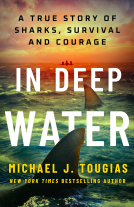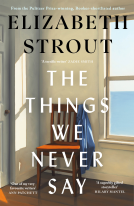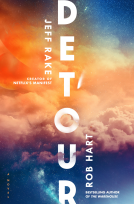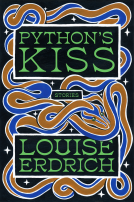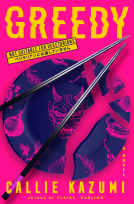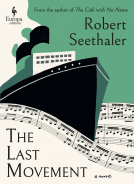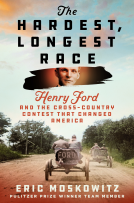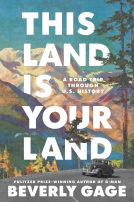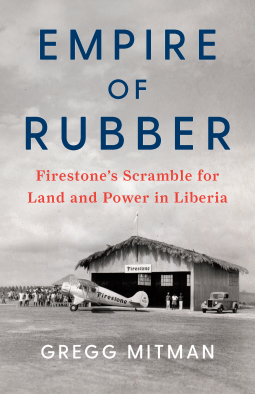
Empire of Rubber
Firestone’s Scramble for Land and Power in Liberia
by Gregg Mitman
This title was previously available on NetGalley and is now archived.
Send NetGalley books directly to your Kindle or Kindle app
1
To read on a Kindle or Kindle app, please add kindle@netgalley.com as an approved email address to receive files in your Amazon account. Click here for step-by-step instructions.
2
Also find your Kindle email address within your Amazon account, and enter it here.
Pub Date Nov 02 2021 | Archive Date Oct 12 2021
Talking about this book? Use #EmpireofRubber #NetGalley. More hashtag tips!
Description
An ambitious and shocking exposé of America’s hidden empire in Liberia, run by the storied Firestone corporation, and its long shadow
In the early 1920s, Americans owned 80 percent of the world’s automobiles and consumed 75 percent of the world’s rubber. But only one percent of the world’s rubber grew under the U.S. flag, creating a bottleneck that hampered the nation’s explosive economic expansion. To solve its conundrum, the Firestone Tire and Rubber Company turned to a tiny West African nation, Liberia, founded in 1847 as a free Black republic.
Empire of Rubber tells a sweeping story of capitalism, racial exploitation, and environmental devastation, as Firestone transformed Liberia into America’s rubber empire.
Historian and filmmaker Gregg Mitman scoured remote archives to unearth a history of promises unfulfilled for the vast numbers of Liberians who toiled on rubber plantations built on taken land. Mitman reveals a history of racial segregation and medical experimentation that reflected Jim Crow America—on African soil. As Firestone reaped fortunes, wealth and power concentrated in the hands of a few elites, fostering widespread inequalities that fed unrest, rebellions and, eventually, civil war.
A riveting narrative of ecology and disease, of commerce and science, and of racial politics and political maneuvering, Empire of Rubber uncovers the hidden story of a corporate empire whose tentacles reach into the present.
Advance Praise
Empire of Rubber is at once an iconic story and utterly unique. In Mitman’s clear, complex, and compelling narrative, he provides privy to the measured and malevolent workings of the U.S. as an imperial formation. Mitman’s account ... is told with erudition and grace in a powerful narrative that combines the political imaginaries and grounded conditions of racism, capitalism, and visionaries long at the heart of imperial democracies.
—Ann Laura Stoler, Willy Brandt Distinguished University Professor of Anthropology and Historical Studies, Director, Institute for Critical Social Inquiry, New School for Social Research, and author of Duress: Imperial Durabilities in Our Times
Gregg Mitman has delivered a brilliant, compelling read. Empire of Rubber draws together the long history of commodity colonialism, the imperial roots of Liberia’s recent civil war, and the fraught relations between American medical institutions and racism at home and abroad. Empire of Rubber dramatizes intersectional thinking at its very best.
—Rob Nixon, Barron Family Professor of Environment and Humanities, Princeton University, and author of Slow Violence and the Environmentalism of the Poor
In this brilliantly rendered, epic tale of American racial capitalism in West Africa, Gregg Mitman details the profound and devastating effects of plantation agriculture. In the process he unearths the political and legal machinations of Firestone rubber in undermining Black sovereignty, and reveals the violence of corporate philanthropy in the guise of development.
—Julie Livingston, Professor of History, and Social and Cultural Analysis at New York University, MacArthur Fellow, and author of Improvising Medicine
Available Editions
| EDITION | Other Format |
| ISBN | 9781620973776 |
| PRICE | $40.00 (USD) |
| PAGES | 288 |
Average rating from 13 members
Featured Reviews
 melvin u, Reviewer
melvin u, Reviewer
Empire of Rubber- Firestone’s Struggle for Land and Power in Liberia by Gregg Mitman - 2021
A perfect pairing for this marvelous book would be Fordlandia: Henry Ford’s Forgotten Jungle City by Greg Grandin .2009
Henry Ford and Harvey Firestone were friends and each needed the other
In January of last year I read a fascinating book about a very rich American industrialist, Henry Ford, trying to find a way to supply his business with Rubber by finding a way to produce it in the third world.
1928 - established Fordlandia on 14,268 square Kilometers in N. E. Brazil- the purpose was to produce rubber. The project was abandoned in 1934.
1900 - Henry Firestone established the Firestone Tire and Rubber Company.
In 1926 Firestone began operating a million Plus rubber factory in Liberia, a huge enterprise meant to supply The Ford Motor company with tires.
Mitman begins his book with a very interesting account of how Liberia came into existence as a country meant to be a home for freed American slaves. In esrly 19th century many White Americans wanted slaves freeed but felt even if freed in the USA they would Face discrimination. Of course few had any Cultural roots left there, between 1822 and The stsrt of The American Civil war in 1961 about 15,000 ex-slaves and free born persons of color were transported to Liberia. The area had an American identity, its capital Moravia was named after James Monroe.
The Liberian constitution and flag were modeled after those of the U.S., Liberia declared independence on July 26, 1847, which The USA recogized in 1862. On January 3, 1848, Ja wealthy, free-born African American from Virginia settled in Liberia, was elected Liberia's first president after the people proclaimed independence.
In early 1920s Firestone sent out experts to Scout the World for a place to grow the huge amount of rubber the American automobile industry, especially Ford, needed. He settled on Liberia.
We learn of the shameful racism of the Firestone compsny. They hired very few African Americans and they got only the lowest worst paid jobs.in Liberia he gave all the management jobs to American whites. In Liberia descendents of freed men who immigrated totally ran the country even though natives far out numbered them. Mitman goes into substantial detail about the Internal politics of Liberia.
There is much to be learned from Empire of Rubber- Firestone’s Struggle for Land and Power in Liberia by Gregg Mitman - 2021.
This is very high quality narrative non-fiction
There is bio data and info on other work
https://gmitman.com/about/
Mel u
The ReadIng Life
 Reviewer 546774
Reviewer 546774
NB: free copy received for honest review
An intriguing account of the economic and political motivations behind the Firestone Company's investment in Liberia, the sometimes problematic and underhanded methods the company used to secure said investment and to bring pressure onto the Liberian government, and the almost invariably problematic ways it treated the local workers. Not always an easy read, but definitely an interesting one.
Readers who liked this book also liked:
Philippe Margotin, Richard Morton Jack
Arts & Photography, Biographies & Memoirs, Entertainment & Pop Culture




